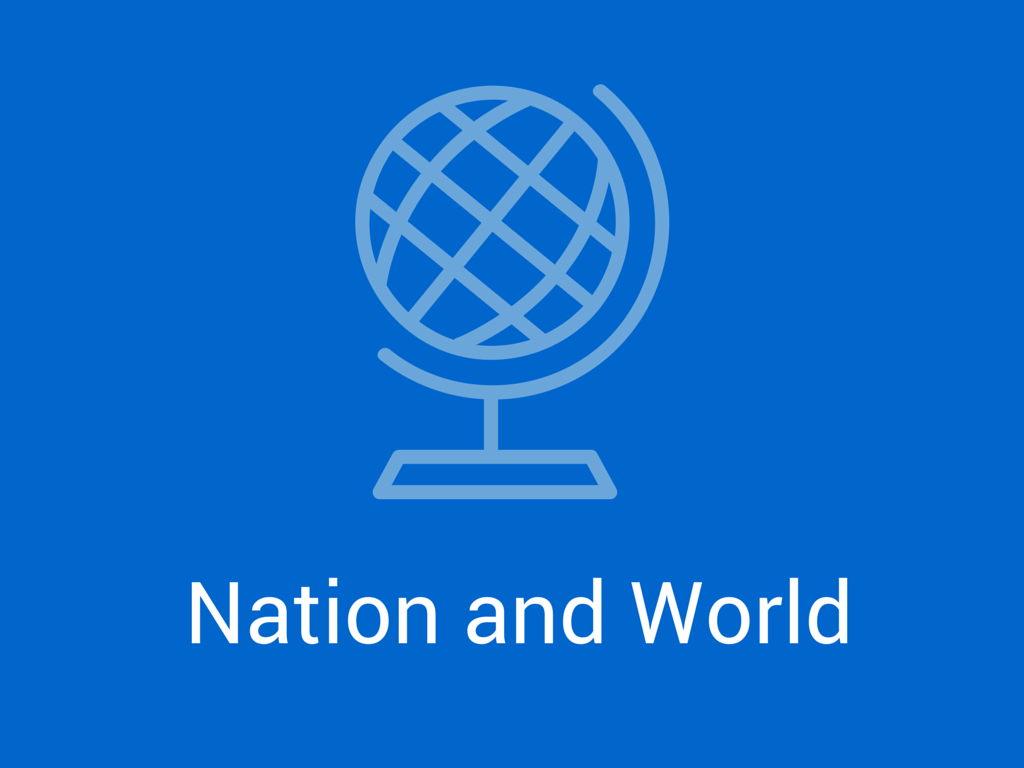Palestinian knife-wielders shot by police
Four separate incidences of knife attacks have occurred amid the recent spike in violence between Palestinians and Israelis. A Palestinian teenager was fatally shot in Jerusalem after he attempted to stab border police, while another Israeli policewoman shot a Palestinian girl in self-defense after the juvenile came at her with a knife in a separate incident. Another Israeli man shot down a Palestinian who he claims assaulted him, although whether or not the attacker was armed is still questioned. Another Palestinian man attempted to stab an Israeli soldier, but was also fired on, and the last incident involved a Israeli police officer almost being stabbed at the checkpoint between Jerusalem and the West Bank. Four of those shot have died, while the fifth has been hospitalized and remains in critical condition. It is thought that this latest uptick in violence is the result of an earlier clash in September. This was spurred by rumors that Israel would be changing religious arrangements governing a holy site in Jerusalem. In the wake of last week’s attempted stabbings and shootings, the United Nations held an emergency meeting.
United States keeps boots on the ground in Afghanistan
U.S. President Barack Obama announced this past Thursday that the 9,800 troops currently in Afghanistan will be kept there through 2016. He then added that about 5,500 troops would remain in Afghanistan when he leaves office in 2017. This is a change from the President’s original plan to have most troops, save a 1,000 strong embassy force, withdrawn by the end of 2016. This announcement is believed to be a result of increased threats of violence from the Taliban, as well as the rise in civilian casualties at terrorist hands since North Atlantic Treaty Organization’s combat withdrawal from the region last year. Other reasons are that the United States is involved again in Iraq due to ISIL and the instability of the Afghan government. Obama justified the decision in his speech, explaining that “The bottom line is, in key areas of the country, the security situation is still very fragile, and in some areas there is risk of deterioration. As your commander in chief, I believe this mission is vital to our national security interests.” The Afghan government is altogether pleased with the decision, claiming that it will help the nation’s stability and that they will “respond to fear and terror with full force.”
Apple loses patent case to University of Wisconsin
Earlier this week, a jury found Apple guilty of patent infringement. The tech giant had used microchip technology in some of its iPhones that had been developed in large part by Gurindar Sohi, a computer science professor of the University of Wisconsin- Madison. This particular microchip functioning was developed to improve the performance of computer processors, and was used in the iPhone 5S, 6 and 6 Plus. The university’s Alumni Research Foundation, which holds the university’s patent licenses, is filing another claim for the technology’s repeated unauthorized use in the newer iPhone 6S and 6S Plus models. Originally the foundation sought a sum close to $850 million for the infringement, but Apple has been called upon to pay a portion of that amount coming to about $240 million. The judge presiding over the case, William Conley, addressed Professor Sohi in court saying, “I hope you felt that your invention was vindicated.” Apple has declined solicitations for comments,announcing only that it would eventually appeal the decision.
Ahmed Mohamed welcomed by Sudanese President
Earlier this year, fourteen-year old Muslim, Ahmed Mohamed was arrested from his Texan school for bringing in a clock of his own making. The school’s assumption that it was an explosive device, as well as the police’s handling of the boy in the incident, has given rise to immense criticism of the school and police. Since then, however, Ahmed has been solicited and praised by many high profile figures including Google cofounder Sergey Brin, Queen Rania of Jordan and the Turkish Prime Minister. He has also been invited to the White House by President Obama, who took to social media to show his support for the young student soon after the incident. This past week, Mohamed traveled to Sudan to meet the country’s president, Omar al-Bashir. Ahmed and his family traveled to the Sudanese capital, Khartoum, where they were welcomed into the presidential compound to speak with the nation’s leader. Ahmed’s father, Mohamed Hassan al-Sufi, is a Sudanese immigrant to the United States and was the presidential candidate who once ran against al-Bashir. Ahmed has expressed appreciation and happiness at having met the Sudanese leader and has said that one day he will return with a new invention.






